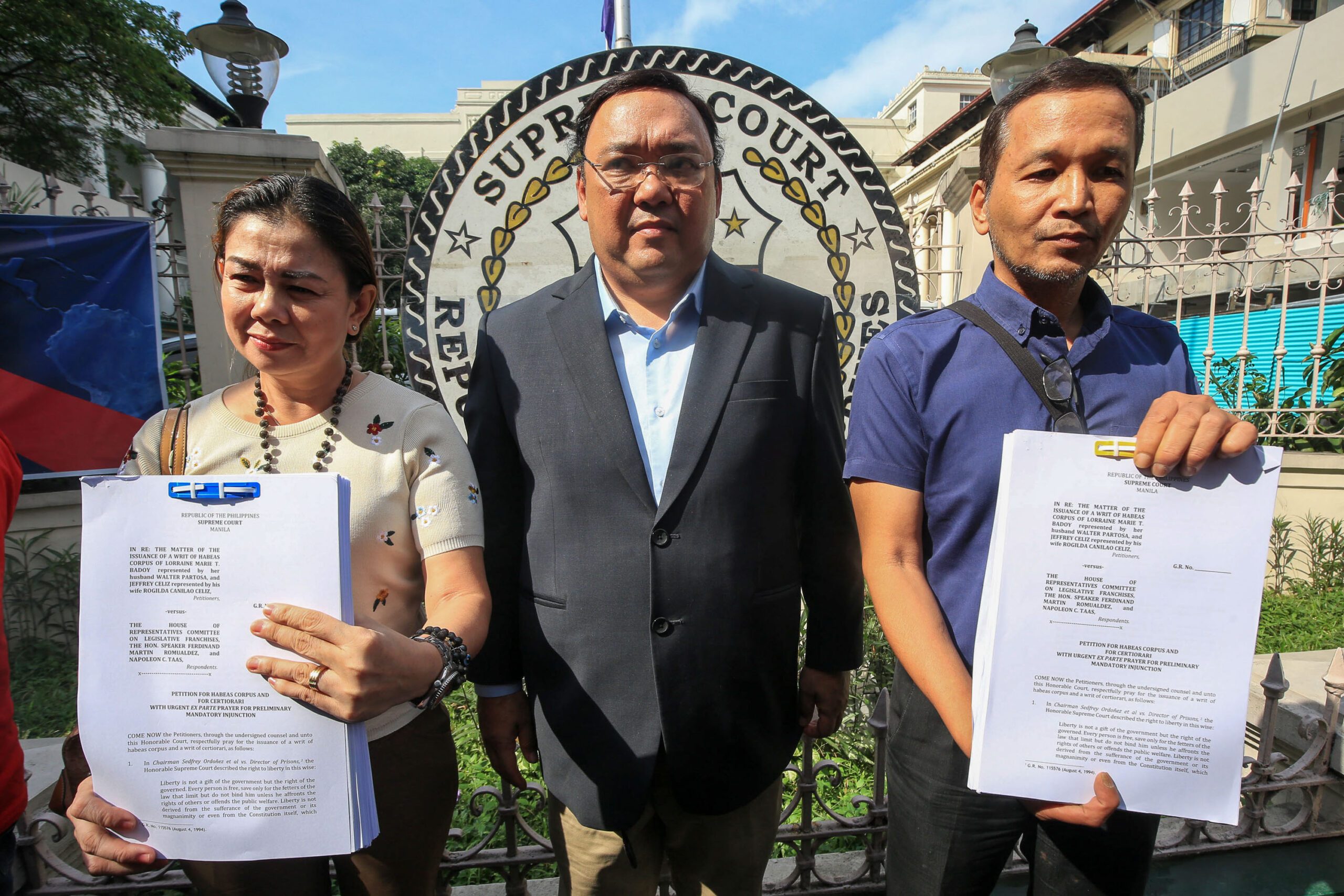SUMMARY
This is AI generated summarization, which may have errors. For context, always refer to the full article.

Following their detention after the House of Representatives held them in contempt, Sonshine Media Network International (SMNI) hosts Lorraine Badoy and Jeffrey Celiz asked the Supreme Court’s (SC) help for their freedom.
On Monday, December 11, Badoy’s and Celiz’s spouses filed a petition for certiorari with a request for the privilege of the writ of habeas corpus. Habeas Corpus, directly translated as “produce the body,” is often used by activists who claim they were illegally detained.
They are also used by families of disappeared activists, to compel state agents to surface them. Badoy is former spokesperson of the National Task Force to End Local Communist Armed Conflict (NTF-ELCAC), while Celiz is a self-proclaimed former rebel, a duo who red-tagged, or labeled people as communists without basis, on their program on a regular basis.

Badoy and Celiz want the Supreme Court to declare as void their detention, which the House of Representatives did using their special contempt powers. The legislature can hold people in contempt of their proceedings, and detain them on that basis, although this power has been repeatedly limited by the Supreme Court. Usually, only a judge can order the detention of someone.
On December 5, the House committee on legislative franchises held Celiz in contempt after he refused to name his source who gave him false information about the alleged travel expenses of Speaker Martin Romualdez. Hours later, Badoy was also cited in contempt for her “refusal to answer any relevant inquiry“ of the House committee.
SMNI, Badoy, and Celiz are currently in hot water after the hosts’ claim on Romualdez’s travel expenses. On December 11, the House committee adopted a resolution urging the National Telecommunications Office to act on SMNI’s franchise.
The writ of habeas corpus, as well as the writ of amparo, are the extraordinary protective writs often invoked by activists against illegal detention and harassment. Activists are not always successful, but they win writ grants here and there such as in the case of Dexter Capuyan and Gene Roz Jamil de Jesus.
The family of Jonas Burgos, who is among the Philippines’ most prominent examples of disappeared activists, won their habeas corpus case but he was never “produced” or surfaced.
The last time that habeas corpus was used by individuals detained at the House of Representatives was in 2017 when the Court of Appeals ordered the release of at least six Ilocos Norte provincial officials who were detained for being uncooperative in a House committee probe into the alleged misuse of P66.45 million in tobacco funds to buy motor vehicles.
The House, however, defied the CA order and questioned the CA’s powers over its authority of congressional committees to cite resource persons in contempt. This controversy displayed a showdown between the legislative and judiciary, risking the possibility of a constitutional crisis.
The officials were later freed by the House on its own initiative, and not by complying with the order.
In another case, Jessica Lucila “Gigi” Reyes – the alleged liaison of former senator now presidential legal adviser Juan Ponce Enrile in the pork barrel scam – walked free from detention on January 19 this year, not because she won a bail grant for the non-bailable plunder but because she won a habeas corpus case in the Supreme Court. She argued that because she had been in jail for too long, her right to a speedy trial was violated. – Rappler.com
Add a comment
How does this make you feel?













There are no comments yet. Add your comment to start the conversation.